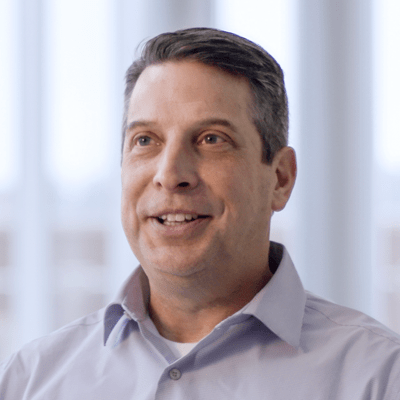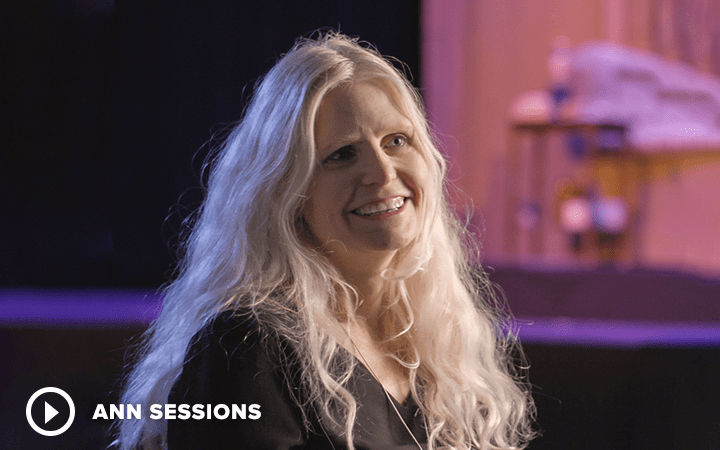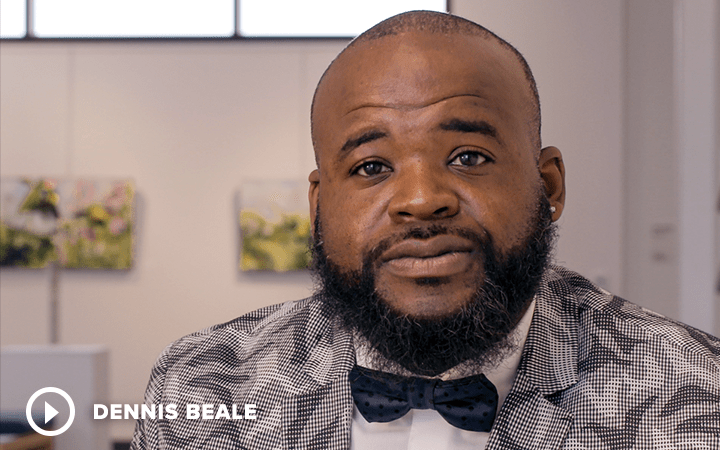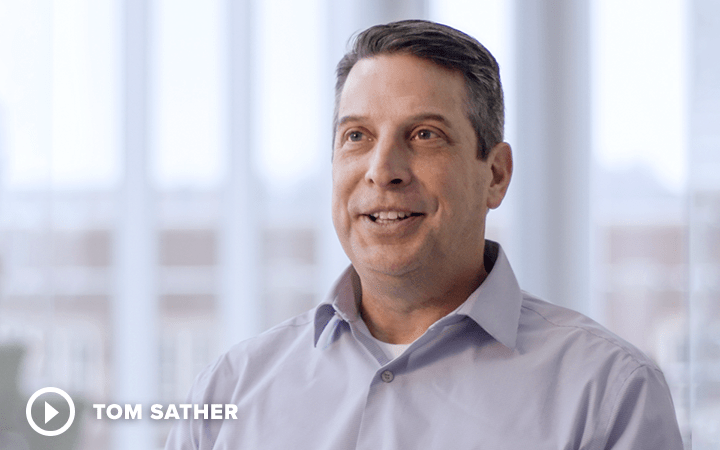Dr. Tom Sather is a natural communicator. In conversation, he is articulate, personable, and passionate about his career and community involvement. But his biggest passion isn’t communicating his own message: It’s creating authentic opportunities for other community members to engage in meaningful communication, make human connections, and increase their wellbeing.
Professionally, Sather has several roles including that of associate professor in the Communications Sciences and Disorders Department at UW-Eau Claire (where he received his bachelor’s and master’s degrees) and speech pathologist at Mayo Clinic Health System in Eau Claire. Yet his impact on the community goes far beyond his professional work, as important and as it is.
Throughout his career, Sather has worked with individuals who have aphasia, a language condition that may occur because of a stroke or other damage to the area of the brain that controls language. “Language is affected, but cognition, intellect, and memory remain intact, so it creates this unique situation where somebody knows what they want to say, but can’t always say it,” he said.
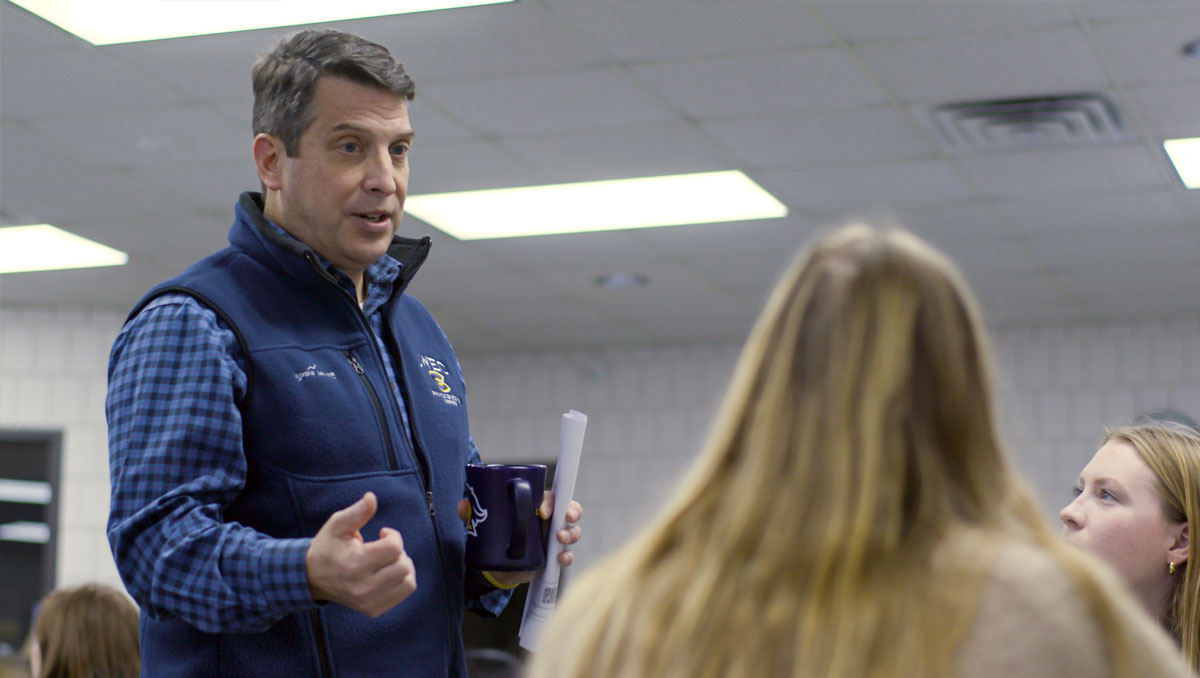

While a stroke is often the cause of aphasia, the condition can also be the result of a degenerative condition known as primary progressive aphasia. In these cases, Sather said, what begins as a mild difficulty with language progresses to impact more parts of the brain, eventually impacting cognition and memory.
“Frustration is certainly one of the primary things that people with aphasia report, as well as their care partners and family,” he said. “Communication is fundamental to what a lot of us do, and so having that impacted can have catastrophic results.”
Sather’s interest in facilitating that communication through multiple means has led him to be heavily involved in the Chippewa Valley Aphasia Group, which was founded in 1997 by two of his mentors and fellow speech pathologists, Mary Beth Clark and Tom Hintgen.
“I did some volunteer work and some clinical experiences where I sat at kitchen tables with people with aphasia and did things in the community with people with aphasia, and that gave me a broader perspective of not just the hospital room, but also the community lived experience as well,” he said.
Sather describes the aphasia group as ahead of its time, providing a space for those with aphasia to work on their communication abilities while also participating in the wider community. Among these activities is an annual aphasia camp at Camp Manitou near New Auburn, which is operated by a partnership between UWEC, Mayo, and the YMCA. The camp gives people with aphasia a chance to be around others who can understand their experiences.
“What people say is, ‘I don’t have to explain to people what aphasia is, I can just be myself,” he said.
“One of the mottos that I have is ‘engage, connect, and communicate.’”
Sather is also involved in a community gardening project that brings together UWEC students and faculty with people with a variety of communication needs, from youngsters working on speech sounds to members of the aphasia group, who gather at a plot in the Forest Street Community Garden on Fridays in the summer to plant, weed, and harvest as well as engage in authentic communication experiences.
If a stroke has affected someone’s ability to have a conversation with people that they don’t know well, Sather noted, “What better place to practice that than at the garden where somebody walks by and says, ‘Hey, what are you guys growing here?’”
Sather’s enthusiasm for fostering communication also led him to help bring a program called Reel Recovery to the Chippewa Valley last September. Reel Recovery is a nationwide nonprofit group for men with cancer of any stage and any form. It involves three-day fly-fishing retreats featuring meals, camaraderie, and “Courageous Conversations” led by a trained facilitator. These conversations are especially meaningful for the men involved, who may otherwise be reluctant to talk about their feelings and experiences, Sather said.
“You can probably guess (that) the fly fishing is kind of secondary to the relationships, the conversations, and the interactions,” said Sather, who co-chaired the retreat, which paired 10 cancer survivors with 10 volunteer fishing buddies.
There’s a common thread connecting Reel Recovery to Sather’s work with people living with aphasia.
“Part of this is the fundamental idea of being human: that you’re involved in meaningful, authentic experiences,” Sather said. “Whether you have aphasia, whether it’s cancer, whether there’s some other condition that might limit you otherwise, there’s opportunities to do that, and being mindful that it’s not tokenism. It’s not doing something out of sympathy. It’s doing something because it’s part of what a community is about.”
Sather said he feels fortunate to be part of these initiatives, adding that “I think that we have to keep our foot on the gas to keep them happening.”
“I think that we’re turning the corner from trying to be the fixers and saying, ‘Hey, you have something that needs to be fixed,’ to saying, ‘How do we all participate authentically in the community,’ and that’s exciting.”



